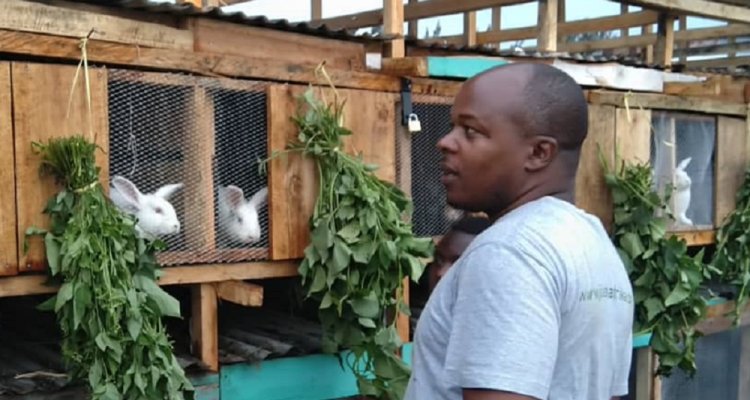
Testimonial
"What I've learned, I now put into practice"
Justin Mafuko runs a centre in Congo to combat malnutrition among the poor. Earlier this year, he followed the course Making Agriculture Work for Food & Nutrition Security of Wageningen Centre for Development Innovation. His community now benefits from the skills he learned during the course.
Looking for simple ideas to use agriculture as a weapon against malnutrition, I came across this course
Justin about the course: "In the Congolese city of Goma, I am the managing director of Malisho Bora, which means 'good feeding' in Swahili. The aim of this centre is to prevent malnutrition among the poor population. A major cause of malnutrition is that agriculture does not meet the nutritional needs of the population. Looking for simple ideas to use agriculture as a weapon against malnutrition, I came across this course. In terms of study load, it was quite tough in combination with my work, but it was more than worth it."
Sharing knowledge in the community
"What I learned, I now put into practice. One thing I learned was that smaller animals, like rabbits, chickens, ducks and guinea pigs, are much more efficient than goats and sheep, two common livestock species in Congo. In our centre we now keep these small animals to bring them to the community later. We want to teach the local people how they can use the small space around their houses optimally for keeping small livestock and growing nutrient-rich vegetables, while paying attention to hygiene. Another simple solution that we are already putting into practice is that we are making porridge from locally produced maize, as supplementary food for babies. We share the knowledge we have gained with the community, with the help of rural NGOs. The role of women is crucial here; their families are often completely dependent on them for food."
Justin continues: "I found that the course was very creatively designed, with a lot of focus on real-life examples that were very informative to me. Although the course was entirely online, it was never boring. The material was also very easy to follow. I still have good contact with my fellow course members. Through our WhatsApp group I keep them informed of the developments at our Centre. The other day I posted a video. My advice to others who are active in developing countries in the fight against malnutrition? Take this course, even if you have no background in agriculture or nutrition. And bring the knowledge you gain directly into practice. With simple agricultural solutions and community involvement, malnutrition can be successfully combated. That is exactly what you will learn during this course."